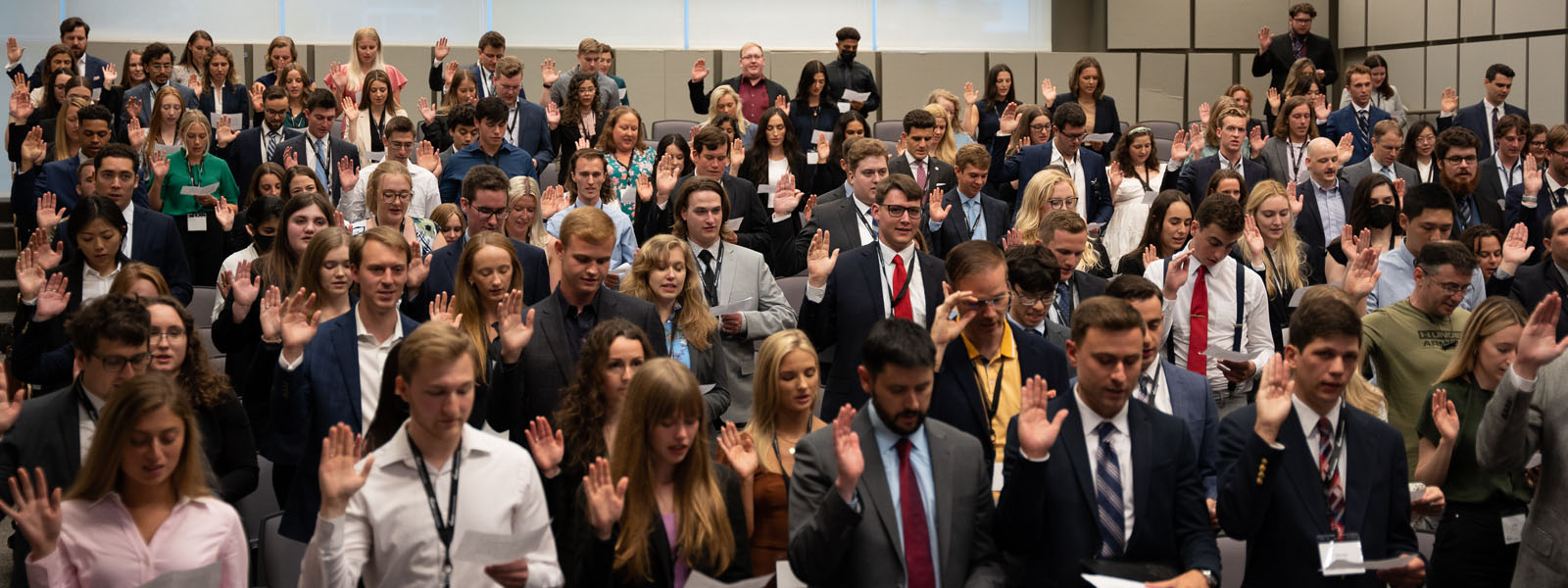
Matriculation Oath & Academic Standards
Background
The importance of public trust in the legal profession requires that students of the Antonin Scalia Law School, George Mason University, maintain the highest levels of ethical conduct, honesty, and integrity. As a result, students matriculating to the school are asked to take an oath committing to uphold those principles.
Additionally, George Mason University has adopted Academic Standards that align with those principles and apply to all students of the University. The standards focus on honesty, acknowledgment, and uniqueness of work and are necessary to preserve the rights of all students to a positive and fair learning environment. The Academic Standards are the principles to which students and faculty are entrusted and to which all commit as members of the academic community.
Matriculation Oath:
Each student at Scalia Law School is entering a profession where honest and ethical conduct is not only a professional responsibility but a legal requirement. Accordingly, upon matriculation to Scalia Law School, students make the following pledge:
As I begin the study of law, I acknowledge that my role in the legal profession is a privilege that comes with responsibilities. Accordingly, I pledge to support my colleagues, respect the faculty and staff, and uphold the reputation of my school. I commit myself to service without prejudice, integrity without compromise, and to civility and professionalism in all my interactions. I will promote the principles of justice handed down by the generations of attorneys who have gone before me. This pledge I take freely and upon my honor.
Academic Standards
Integrity without compromise includes a commitment to the principles outlined in George Mason University’s Academic Standards. All students are expected to maintain highest personal integrity by upholding the Academic Standards.
The Standards require:
- Honesty:Providing accurate information in all academic endeavors, including communications, assignments, and examinations.
- Acknowledgement:Giving proper credit for all contributions to one’s work. This involves the use of accurate citations and references for any ideas, words, or materials created by others in the style appropriate to the discipline. It also includes acknowledging shared authorship in group projects, co-authored pieces, and project reports.
- Uniqueness of Work:Ensuring that all submitted work is the result of one’s own effort and is original, including free from self-plagiarism. This principle extends to written assignments, code, presentations, exams, and all other forms of academic work.
We expect that each of us will tell the truth, respect the property of others, and never represent the work of another as our own. We will neither provide nor accept unauthorized assistance on any school-related assignment, nor shall we either intentionally mislead or impede the learning of our fellow students.
Essential to the character of these Academic Standards is the obligation of each student to report conduct that may constitute a violation of the Standards and to participate in an adjudicatory proceeding if called upon.
The procedures for proceedings involving a JD or LLM student are available. The procedures for proceedings involving JM students are available.